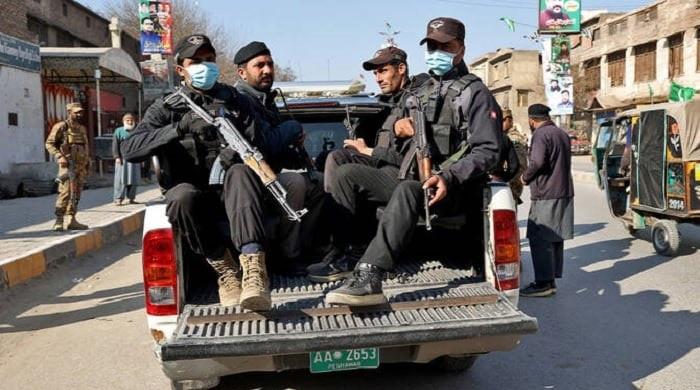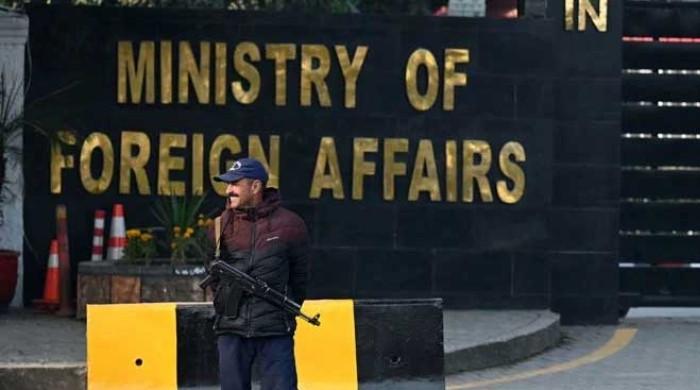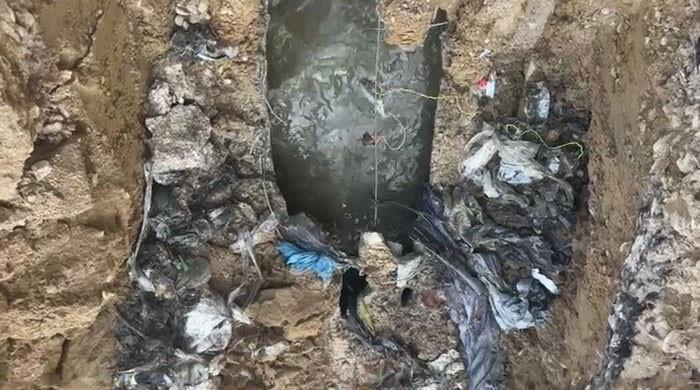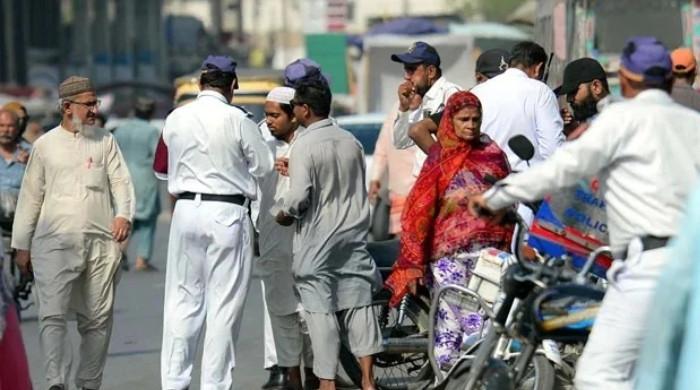KP to close schools, make masks mandatory from April 26 in districts with over 5% positivity ratio
Offices to operate from 9am-2pm, while shopping malls, shops, & markets to shut down by 6pm, per home dept
April 24, 2021
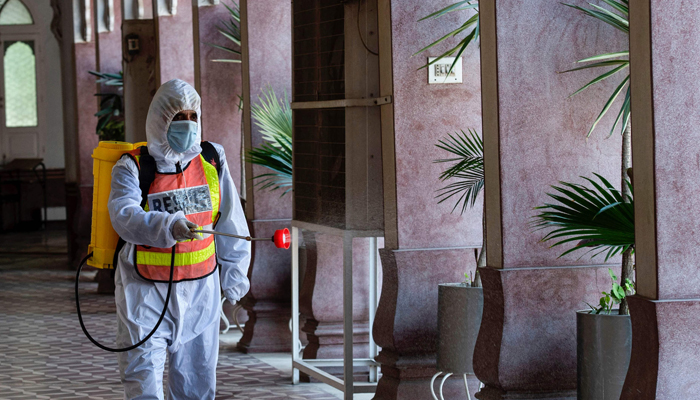
- Offices to operate from 9am-2pm.
- Shopping malls, shops, and markets to close at 6pm.
- Overall coronavirus positivity ratio in KP is 15%.
The Khyber Pakhtunkhwa government will close schools and make masks mandatory in districts with more than 5% coronavirus positivity ratio, the home department said Saturday, as the country battles the third wave of coronavirus.
The home department, announcing the fresh restrictions to curb coronavirus, said office timings — for both government and private firms — would be fixed from 9am to 2pm. On the other hand, shopping malls, shops, and markets would shut down at 6pm.
The overall coronavirus positivity ratio in Khyber Pakhtunkhwa stands at 15%, while the rate has shot up to a worrying 41% in Mardan, according to the health department.
The health department, in its report, said the rate of COVID-19 positivity has reached 27% in Peshawar, 34% in Lower Dir, 23% in Malakand, 25% in Nowshera is 25%, and 18% in Charsadda Swabi, while the rate was 16% in Shangla and Chitral.
Meanwhile, Districts Battagram, Kohistan, Buner, Torghar, North Waziristan, and Karak's positivity ratio is 0%, the health department added.
'Mounting pressure'
Meanwhile, KP Health Secretary Syed Imtiaz Hussain Shah, speaking to Geo News, said if the COVID-19 positivity rate does not fall in Mardan and Lower Dir, the government would consider imposing a lockdown in the districts.
Shah said the province's chief secretary had taken notice of the increasing coronavirus cases in Mardan and Lower Dir and asked commissioner Mardan to take all possible steps to reduce the virus' spread.
The health secretary said the COVID-19 cases were increasing in the districts as people were not implementing standard operating procedures.
He appealed to the people to implement SOPs, saying that the pressure is mounting on hospitals as the number of patients continues to rise.
"There were several cases in Buner, Swabi, and Charsadda; however, the deputy commissioners of the three districts asked the religious and political leaders to stop announcing funeral prayers and ask people to religiously abide by SOPs — and that reduced the number of cases."
NCOC mulls lockdowns in cities with high positivity ratios
Earlier in the day, the National Command and Operations Centre (NCOC) said it was considering the enforcement of a lockdown in cities reporting high positivity ratios.
According to the NCOC statement, in light of increasing coronavirus cases, the forum "deliberated upon proposed lockdowns in high disease prevalence cities".
The statement made no mention of what positivity ratio the forum considers high enough to warrant a lockdown.
The NCOC clarified that talks would be held with stakeholders before a lockdown is imposed.
The restrictions, if enforced, would include the closure of markets, malls, less essential services, a ban on intercity public transport, and a complete closure of educational institutions.
To ensure that the lockdown achieves its target of curbing the virus' spread, the assistance of the army, Frontier Corps, and Rangers, would be provided to provincial governments, the statement said.




